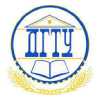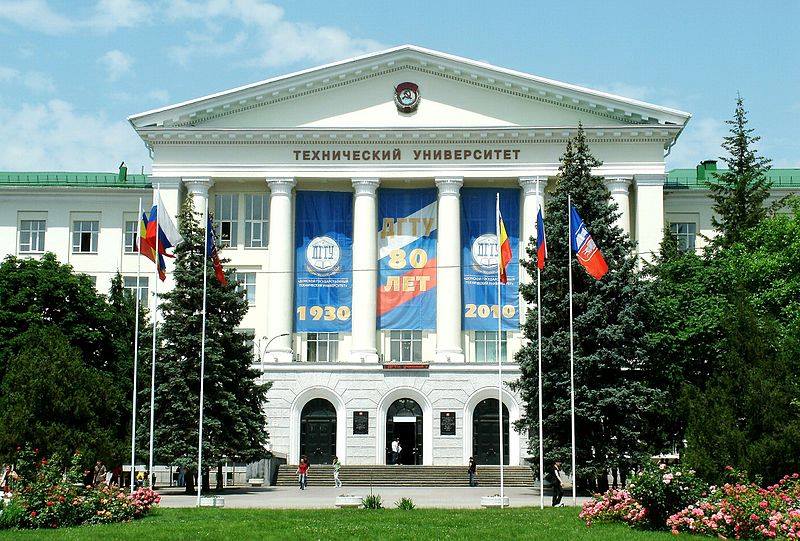Gagarin square 1, Rostov-on-Don, 344000, Russia
Career Counselling

Don State Technical University is the largest institution of higher learning in Southern Russia and is located in the city of Rostov-on-Don. With six branches and almost a century of history, it is home to over 46,000 students, and is an important center of excellence in technical education and research.
The academic organizational structure of DSTU includes 23 Faculties and 134 Departments, most of which are related to Technical and Engineering subjects, though there are also Faculties of Law, Social and Human Sciences, and Physical Training and Spor...
| Establishment year | 1930 |
| Total Students | 46,000+ |
| International Students | 2,608 |
| QS World University Rankings 2024 | 1201-1400 |
| Campus Size | 62 acres |
| Total Number of Campuses | 6 Branches |
| University Website | https://donstu.ru/en/ |
| No. of Schools and Divisions | 23 Faculties and 134 Departments |
| Nobel Prize Winner Alumni | 0 |
| No. of Education Programs | 370+ (including Bachelor’s, Master’s, PhD, and MBA) |
| Student to Faculty ratio | 9.2:1 |
Don State Technical University offers undergraduate and postgraduate courses through 7 Faculties, which are further subdivided into Departments.
All international applicants (undergraduate and postgraduate) to DSTU must satisfy the following requirements:
The admission process for undergraduate international applicants, along with approximate timelines and deadlines, is as follows:
The admission procedures are similar for Master’s and PhD applicants as well, with minor differences in dates.
Tuition fees for undergraduate courses vary widely according to the type of program. Here are some indicative amounts, along with examples of Bachelor’s courses corresponding to each:
Master’s course tuition fees have five different values:
PhD tuition fees are either 144,800 rubles per year or 151,400 rubles per year. Accommodation and living costs can range from 10,000 to 20,000 rubles per month, depending on the rooms chosen and canteen costs.

Accessibility is a key focus area at DSTU, with ramps and elevators present at all academic buildings, dormitories, and the Sports and Recreation Center, to ensure that there is a barrier free environment with universal wheelchair access.
The DSTU Student Services Team is an essential part of helping international students settle down and find their way around the campus and the city. There are seven dormitories at the University, with rooms designed for either two or three students to live comfortably. Laundry and basic cooking facilities are available, and each dormitory also has a free sports and workout area.
There are several dining options at DSTU, with 16 canteens, cafes, and bakeries spread through the campus. These provide tasty and nutritious food. A unique feature of these restaurants is that each item has its calorific value and potential allergy triggers listed, so that students can always prioritize their health while eating.
DSTU student unions and communities organize sports and cultural activities on campus and give the student body a voice in the administration of the University. In terms of social and cultural functions, these clubs help new students settle in after their arrival at the University, organize student parties with live music, set up orchestra and theater performances, and organize regular treks and backpacking trips to the nearby mountains.

Many clubs perform important functions for the student community. For example, the Employment and Career Promotion Center helps students find internships, virtual work, and full time job opportunities after graduation. The Alumni Association brings together present and past students of DSTU to increase mentorship and donation opportunities. The "Burning Hearts" Student Volunteer Union helps members of the University who have a passion for social work participate in community activities to make the world a better place. There are also psychological counseling services to ensure that any student with mental health issues can access emotional support and timely help.
The DSTU Sports Park has a multi-sport stadium and outdoor grounds that together allow students to stay active and pursue any physical activity of their interest. This stadium has world class facilities, and can host national and international sporting events. The DSTU Sports and Recreation Center gives students access to the best cardio and weight training equipment, with regular support from certified personal trainers. There is a six lane swimming pool in this center, which is open to both students and other citizens of the city. The Recreation Center also has several halls to play indoor sports like volleyball, table tennis, and basketball. There is a Medical Center on campus that allows students to access the best treatment in the fields of dentistry, emergency services, and physical therapy. Unique sports related clubs at the University include "Don Sky", the Aeronautics Club, the Yacht Club, and the Horse Riding Club.
The flagship funding option for foreign students at DSTU is the International Olympiad for Master’s candidates at the University. This allows international students to access Russian State Scholarships to study for free (full tuition fee waiver) at DSTU. Applicants must register for this examination between mid-January and mid-February of the year of program entry. There are two Olympiad stages, both held online, during February and March; these typically have challenging problems to be solved in six different disciplines:
